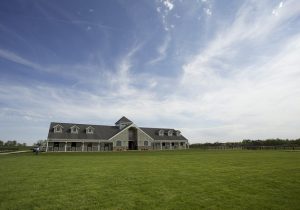
Being self-sufficient today can include growing your own food. Here is a new-home tract that includes farmland within the community:
Amy Fahey tends to a backyard garden at her suburban Chicago home, growing tomatoes, cucumbers, kale, peppers, Brussels sprouts, beans and herbs. But never squash.
“Three years in a row I’ve been struggling to grow squash,” she said. The reason it won’t take, she thinks: There aren’t enough bees to pollinate the plants. “We’ve killed off parts of the environment that could naturally make this happen,” said the retired J.P. Morgan executive who lives in Elmhurst, Ill., with her husband and teenage daughter.
But the neighborhood in which the Faheys are building a home offers new hope.
Set in Hampshire, Ill., about 50 miles from downtown Chicago, Serosun Farms is a new home-conservation development, restoring wetlands, woodlands and prairie, and preserving farmland throughout. Already, the frog population has grown exponentially from the conservation work done onsite, and monarch butterflies are also on the rebound, said Jane Stickland, who is working on the project with her brother, developer John DeWald. Their efforts also are boosting the bee population.
It’s very early in its development, but Serosun plans to incorporate about 160 acres of working farmland, making farm-to-table a way of life for residents through regular farmer’s markets. The community also offers eight miles of trails, an equestrian center and fishing ponds: 75% of the development will be reserved for farming and open space.
The 114 single-family homes range from $700,000 to $2 million; the median listing price for homes in Hampshire, Ill., is about $238,000, according to Realtor.com.
Read full article here:



